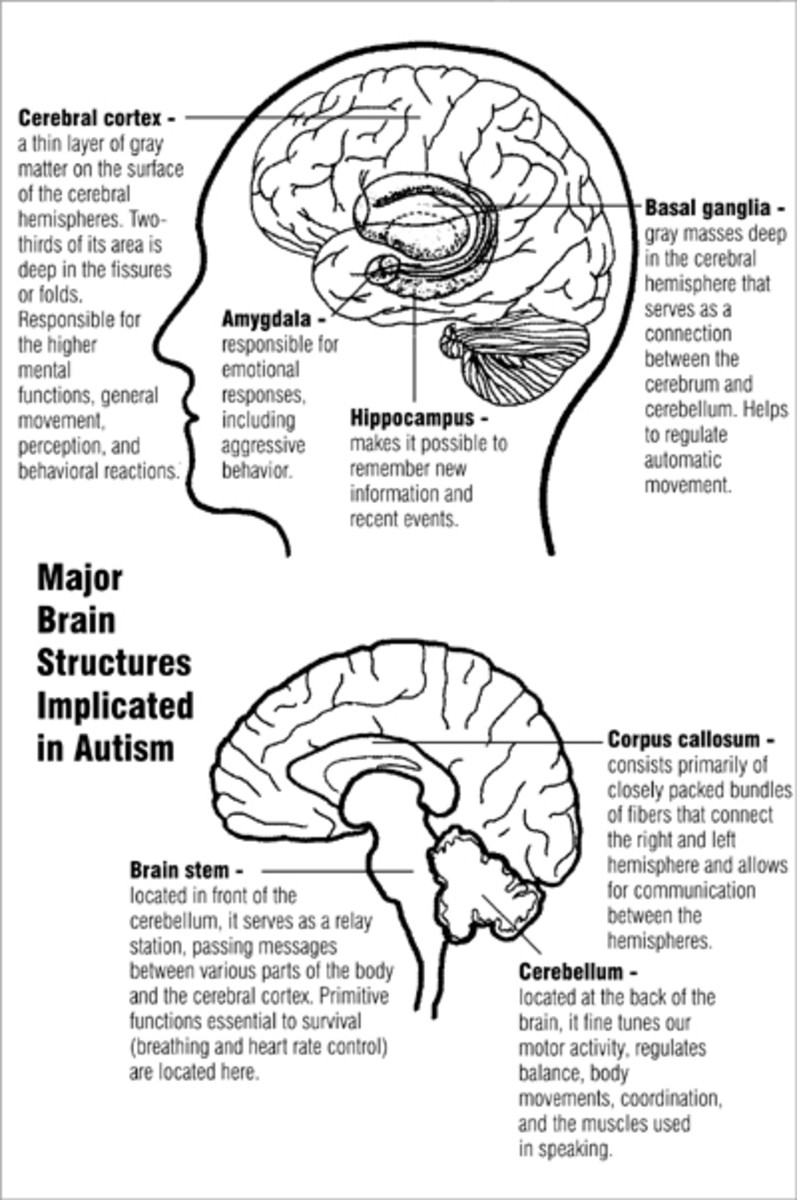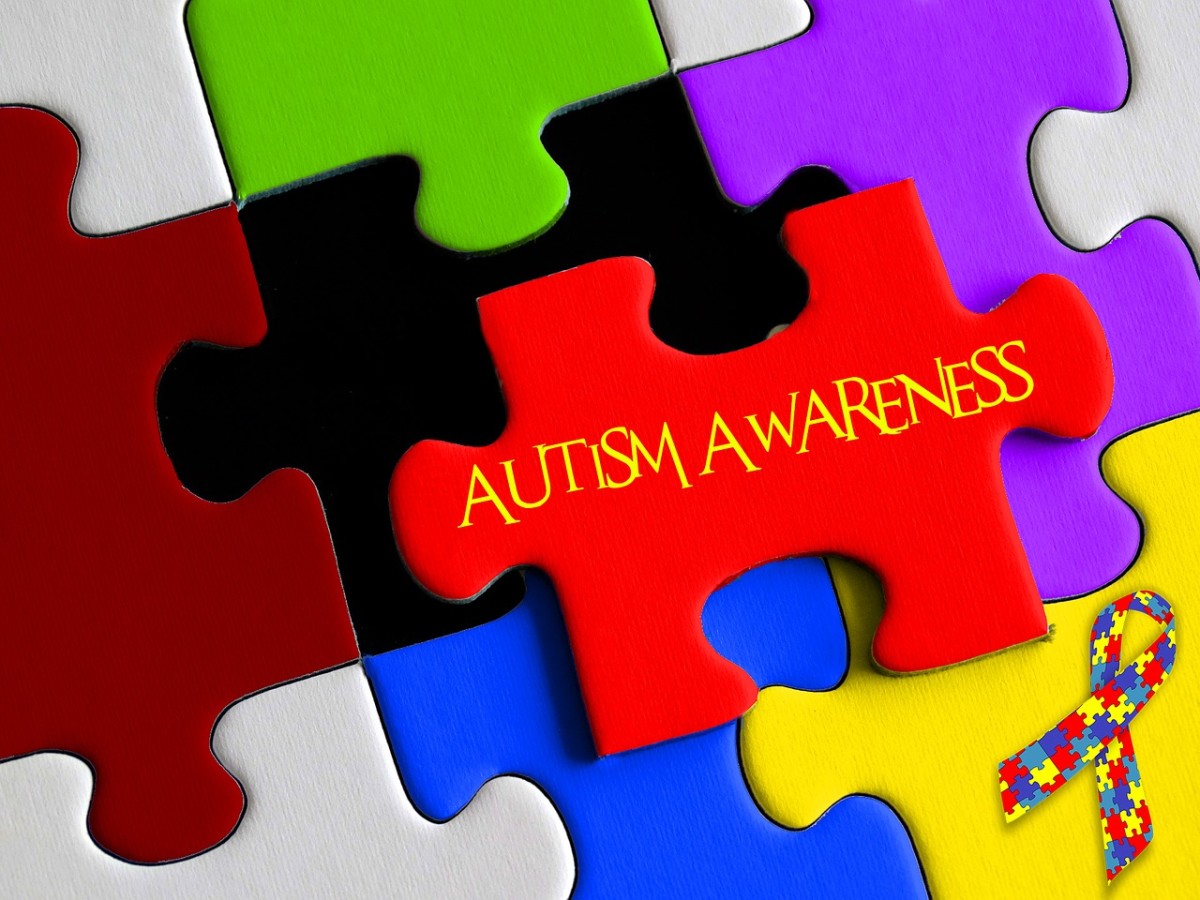Mental Health Reform: Better Criteria for Autism Spectrum Disorder

Mental Health Reform History of ASD
Proposed changes gathered throughout 2012 to the official diagnostic criteria for Autism Spectrum Disorder (ASD) in America indicate stricter requirements, imply that a smaller group of individuals will fulfill these requirements, and thereby imply possible reduction in government and insurance funding for related programs and services at-home and in community programs.
Healthcare practitioners and the public may take the opportunity during Spring 2012 to visit a website containing the proposed changes for ASD and make their opinions and experiences related to them known. Changes in criteria for other mental health conditions, along with newly proposed conditions are also listed at the website for review and comment.
Recent Research
- CDC Sees Autism Rate Rise By 25% in Study 2008 - 2009
Previous CDC estimates put prevalence at 1 in 110 children; In early 2012, the rate has increased to 1 in 88. Perhaps better testing is the difference. One in 54 boys have autism, while one in 252 girls do. - How Asperger's Syndrome Is Solidly Addressed In the DSM-5 For 2013
Now that the deadline has passed for public contribution of opinions and suggestions to the 2013 release of the DSM-V manual for determining Austism Spectrum Disorder (ASD) and incorporating Aspberger's Syndrome into ASD, public and media speculation - Oregon Families Find Solutions for Autism Spectrum Disorders
The rate of Autism Spectrum Disoders increased among cohorts of American children born in 1992, 1994, and 1996. Children were followed up for diagnoses received through their 8th year, or years 2000, 2002, and 2006 respectively. The last group showed

Range of Behaviors
In professional experience and personal contact, I've worked with or been friends with a few dozen persons that have an Autism Spectrum Disorder (1989 - 2012). Each has had a unique set of behaviors, from an almost catatonic state in early childhood to what the layman would call "mild" Asperger's Syndrome. The changes with time and attention in these individuals has been intriguing.
Surprisingly, the infant I knew in near catatonia was diagnosed with Asperger's as an infant, but improved to the status in his senior year of high school of no longer displaying or feeling (in his words) any symptoms. Most visible is that his physical awkwardness and fear of lights and noise disappeared. Physicians estimated at his infancy that he would never speak or walk, but he was a straight A student in regular and advanced classes K-12 and won a 4-year scholarship to college. He did not play sports because of a slight "clumsiness" often part of some ASD like Asperger's, but this disappeared in 12th grade and he rode motorcycles with his dad with never an accident.
I can only attribute his dramatic improvement to intense and consistent time and care taken with him by his extended family and friends of his family, insurance-paid services being so long in the obtaining. Parents and families seem to come up with ways of managing the Autism Spectrum Disorder range that are even better than many of those suggested by the healthcare system.
I recently commented on shazwellyn's thread that ASD is one mental health condition for which I am glad people are amassing lists of behaviors and symptoms and speculating about and sharing management technuies, because parents and families themselves began to act before autism became a household term. They did the bedrock work to manage the conditions. Today, they are doing a more thorough job than some professionals. Professional research helps and some medications are useful short term, but the families and the individuals with autism seem to be doing the hardest and most wide ranging work (at least in Ohio).
A remarkable film that critics are attempting to bury is about ASD and one family's successful management of behaviors to bring out the best in a youth even though his dad died in 9/11 - Extremely Loud and Incredibly Close. It is nominated for two Oscars.
A 22-Year-Old Applied for Help with ASD in 2000, Still Waiting in 2012
- In Your Corner: Waiting For An Autism Waiver | Indiana's NewsCenter: News, Sports, Weather, Fort Way
Matthew Gibson is a 22, with Severe Autism. He also has obsessive compulsive behavior and signs of Tourette Syndrome. Everything seemed normal until he was suddenly diagnosed at 2 years old. Since then he's not been able to talk or care for himself.

- AUTISM and Controversial Oscar Nominations Well Deserved: Extremely Loud and Incredibly Close on 9/1
The real star of this film is the focus on fears and mental health concerns that those who do not have them wish to avoid. A young man and an old man meet their fears against the backdrop of 9/11 and the additional grief it injects into their lives.
Lack of Intervention
Another sad case is a pre-teen diagnosed with ASD in elementary school and treated with medications and therapy sessions. After SSDI income was approved for the child, parents abruptly withdrew him from medications and therapy. The father is functionally illiterate and has a dual diagnosis mental health condition. The mother is physically disabled and has a dual diagnosis mental health condition that includes a substance use history.
The child is disruptive, aggressive, and sexually inappropriate in behaviors toward children and adults; and receives no guidance outside school. He has perpetrated escalating physical attacks on other students, been suspended, expelled, and entered into the justice system at age 11 1/2 or 12. The legal gateway may have saved his life if it leads to effective management of ASD in an effective living environment in which available services are known and accessed..

ASD Criteria Tightened In 2012
Some opinions of persons of influence may be that ASD is being over-diagnosed in America, likely because of the costs involved in diagnosis and management, including some cases of medication.
The American Psychiatric Association's Diagnostic Manual V will be completed in 2012 for release in 2013, 20 years after the DSM IV was first used.The changes have been upsetting to patients and families, as well as some advocates and practitioners.
DSM V, in process, thus far contains the umbrella category Autism Spectrum Disorder (ASD). It encompasses 1) all of autism as we know it aside from Asperger's,2) Asperger's Syndrome, 3) Childhood Disintegrative Disorder, 4) Pervasive Developmental Disorder Not Otherwise Specified (PDD-NOS). As a separate condition from ASD, the category Social Communication Disorder appears. Not everyone is comfortable with this.
Thee Autism Spectrum Disorder category in Edition V is tightened up and pared down, considering the range of autism we know. The DSM IV contained six criterion areas with a number of related behaviors required to be manifested in a prescribed number of these areas to qualify for the diagnosis of an ASD, and hence possible Social Security Disability Income (SSDI). I performed many psychological portions of Social Security Disability Evaluations in the past and found the exercise quite complex for autism as well as for ADD/ADHD.
The 2013 ASD criteria will have only 4 criterion areas and a person must quality in all 4 to be diagnosed with ASD and one stipulation is that behaviors MUST begin in early childhood (i.e., birth through age 5).
The public had the chance to look over the new criteria and make comments about them.
Additional Information About ASD
- Effectiveness Of Early Childhood Interventions For Autism Spectrum Disorder (ASD)
The American Psychological Association has examined the large body of research behind all the disorders that landed on the new Autism Spectrum published by the Other APA (Psychiatric) in the DSM-V diagnostic manual effective May 2013. Public input wa - Pesticides and Other Causes of Autism Spectrum Disorders
Several possible causes for ASD. - Dr. Temple Grandin, Autism, and How Animals Make Us Human
Temple Grandin combines a history of effective teaching skills, maximizing human potentials, industrial design, and cattle ranching to show us how to advocate for individuals with Autism...
© 2012 Patty Inglish MS








